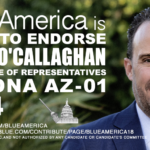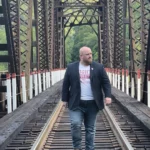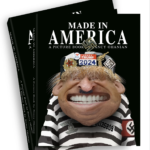[oldembed src="https://www.youtube.com/embed/3yNSpo0tqgI?rel=0" width="425" height="239" resize="1" fid="21"]
As I've written before, political pressure is one of the factors that keep us from having a safe drug supply.
This is frightening, is it? (Especially worrisome to me, since my doctor wants me to get injections in my neck.) We have a real problem with the pharmaceutical industry in this country, and we do not have a thorough system of ensuring a reliably safe drug supply. This story spells out some of the problems:
A year before people began dying of meningitis caused by a tainted drug from a compounding pharmacy in Massachusetts, the Food and Drug Administration worried that compounders across the country might be selling another substandard drug, one possibly made with unapproved Chinese ingredients.
But when the F.D.A. began seeking samples to test, the trade group representing compounding pharmacists went on the offensive. Instead of encouraging members to help the agency determine if the injectable drug, used to reduce the risk of premature birth, was substandard, the group tutored pharmacists on how to sidestep requests.
In an e-mail to members, the International Academy of Compounding Pharmacists suggested that they respond to any request for samples by saying: “We do not compound or distribute ‘samples’ of any of our prescription medications to anyone.” And if a compounded drug was on the premises, the trade group added, a pharmacist should say it was awaiting pickup by a patient.
A spokesman for the trade group said the instructions were intended to guard against unauthorized release of samples to corporate competitors and not to hinder the F.D.A. investigation. But the memo is emblematic of the industry’s frequent and often successful attempts to fend off regulators at a time when concerns are growing about the quality of compounded drugs and the uncertain provenance of their ingredients, some of which originate in China and flow through various repackagers and middlemen with little scrutiny, according to interviews with health experts and government records.
Drugs made by compounders — who mix or alter ingredients to create customized medicine for a specific patient — are rarely tested, unless someone is harmed or a complaint is filed. But in the only two states that randomly test compounded drugs, Texas and Missouri, significant problems have surfaced.
In Texas, a hub of compounding pharmacies, random tests by the state’s pharmacy board over the last several years found that as many as one in four compounded drugs was either too weak or too strong. The testing results are just slightly better in Missouri. Potency varied by as much as 300 percent in the Missouri tests.
And records of F.D.A. drug seizures at United States borders, as well as several criminal cases, point to a link between drug compounders and Chinese manufacturers, some not registered with the F.D.A. Records analyzed by The New York Times show that in 62 cases over the last decade, the F.D.A. blocked the importation of drugs for use in compounding; nearly half were from China, one of the largest producers of raw pharmaceutical ingredients, where many manufacturers operate outside the regulatory net.
The F.D.A. said on Friday that investigators did not believe that original ingredients used by the Massachusetts pharmacy, the New England Compounding Center in Framingham, were the source of the crisis unfolding in 16 states, where at least 297 people have contracted meningitis and 23 have died. (Authorities have yet to disclose the name or location of the compounder’s supplier or suppliers.) Those affected had been treated for back and neck pain with contaminated steroid medicine produced at the compounding center.
[...] As companies increasingly buy raw materials from foreign sources — about 80 percent of active pharmaceutical ingredients in products sold in the United States come from overseas — regulators are struggling to keep up. The F.D.A. estimates it would take nine years to inspect just the high-priority pharmaceutical plants one time.
Isn't it great that they won't let us buy cheap drugs from Canada, because they "might not be safe"? I don't remember hearing any stories like this about Canadian drugs. Curious!
And don't worry, at least one Republican politician says we don't need any more regulation....


















